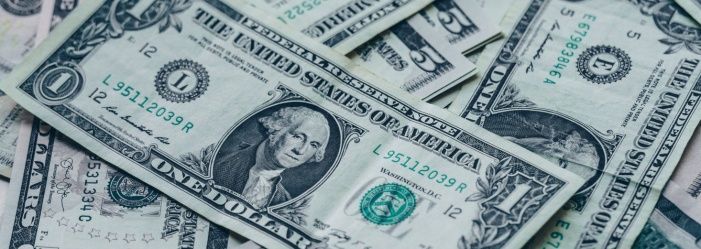Last Updated: February 02, 2024
Debt Settlement Can Reduce What You Owe

Settling your debt can not only get you back in better financial standing but can help the economy as well. This is the finding of a study performed by John Dunham and Associates for the American Fair Credit Council (AFCC).
What is Debt Settlement?
Debt settlement is a service that Pacific Debt, Inc. offers to consumers who find themselves unable to pay even the minimum amounts on their unsecured loans. A debt settlement company negotiates with your creditors on your behalf to substantially lower the amount you owe. Currently, throughout the US, almost 400,000 consumers and $12 billion of debt are enrolled in debt settlement. This debt represents 2.9 million separate accounts.
How Does Debt Settlement Help the Economy?
In 2018, 28,000 jobs in the debt settlement industry accounted for over $700 million paid in taxes, which deems it vital for the economy. Debt settlement also helps people overcome their financial crisis by providing a proven path to get back on their feet.
“Debt settlement truly helps consumers in need by offering a private sector alternative to bankruptcy. AFCC members help consumers make the best of a bad financial situation and – judging by these numbers – achieve outstanding results,” said AFCC President Robby Birnbaum
How Much Does Debt Settlement Help the Economy?
Adding all three of these factors together shows an annual economic impact of $4.9 billion or 0.02% of the GDP (gross domestic product). That is a surprisingly large percentage of the GDP, the total of all the goods and services that make up the economy.
In 2018, about 902,450 accounts were settled. These were valued at $5.1 billion and settled for $2.5 billion. Settling allowed the debtors to put money back into savings. Most importantly, it allows them to buy other goods and services instead of just paying on past services, late fees, and interest.
The Census of Consumer Finances reports that 11.5% of American families have filed for bankruptcy at some point. Since this is a complicated and expensive process, imagine the economic benefits if those families had been able to complete a debt settlement program.
Not All States Allow Debt Settlement
Not all states allow debt settlement and according to the report, these states are missing out on a huge economic windfall. The study reports that, if all states were included, the economic impact would be an additional $1.4 billion in revenue. Employment would increase by 9,167 jobs. Debtors would save $422.2 million in savings through debt settlements. Even creditors show a huge impact, collecting $629.9 million in payments that may never have been collected.
The following states do not allow or severely limit access to debt settlement options include Connecticut, Georgia, Hawaii, Illinois, Iowa, Kansas, Maine, New Hampshire, New Jersey, North Dakota, Ohio, Oregon, Rhode Island, South Carolina, Vermont, Washington, West Virginia, and Wyoming. If you live in one of these states, consider contacting your state representatives and sending them a copy of the linked report. It could have a huge positive impact on your state’s economy and residents.
Can Debt Settlement Help You?
Absolutely! If you have more than $10,000 in credit card debt, contact Pacific Debt, Inc. We may be able to help you become debt-free in 2 to 4 years. We have settled over $250 million in debt for our customers since 2002.
Pacific Debt, Inc. is accredited with the Consumer Debt Relief Initiative (CDRI) and is an A+ member of the Better Business Bureau. We rate very highly in Top Consumer Reviews, Top Ten Reviews, Consumers Advocate, Consumer Affairs, Trust Pilot, and US News and World Report.
How Debt Settlement Compares to Other Debt Relief Options
While debt settlement can reduce what you owe, it does have downsides. Here's how it stacks up against alternatives like debt consolidation loans and credit counseling:
Debt Consolidation Loans
Debt consolidation loans allow you to roll multiple debts into one new loan, often with a lower monthly payment. This can make payments more manageable, but you'll still owe the full balance plus interest. Consolidation loans don't make debts go away.
Debt consolidation Pros:
- Lower monthly payment
- Consolidate multiple debts
- May have a lower interest rate
Debt consolidation Cons:
- Doesn't reduce principal owed
- Loan approval is not guaranteed
- Missed payments can worsen the situation
Credit Counseling
Non-profit credit counseling agencies can help you manage debts through services like debt management plans (DMPs), budgeting help, and financial education. This won't make debt disappear but can make monthly payments more affordable.
Credit Counseling Pros:
- Lower interest rates/fees
- Affordable payment plans
- Financial Guidance
Credit Counseling Cons:
- The balance owed stays the same
- The credit score is still damaged
- Plans can take years to complete
Bankruptcy
Declaring bankruptcy liquidates assets to pay back creditors, discharging remaining debts. This legal process stops collections and wipes out what you owe but at the cost of assets and a damaged credit history.
Bankruptcy Pros:
- Much debt eliminated
- Collection calls/lawsuits halted
- Get a fresh start financially
Bankruptcy Cons:
- Damages credit for years
- Potential asset liquidation
- The stress of the legal process
Choosing a Reputable Debt Settlement Company
With debt settlement, finding an ethical company is crucial.
Here are tips for identifying good firms:
- Check credentials. Choose companies accredited by organizations like the Consumer Debt Relief Initiative (CDRI).
- Read reviews. Research third-party review sites like ConsumerAffairs and Trustpilot for client experiences.
- Compare services. Get fee structures, projected timelines, and results in writing from multiple companies.
- Ask questions. Clarify the process, guarantees, and what support they’ll provide you.
Avoid companies that:
- Pressure you to sign up immediately
- Guarantee unrealistic outcomes
- Require large upfront fees
Taking time to vet settlement firms thoroughly protects you and your finances. Contact us if you have any other questions about finding a reputable company.
FAQs
Conclusion
Debt settlement can be a viable option for becoming debt-free when affordability is a major obstacle and you owe a significant unsecured debt. Settlements can reduce principal balances owed by 10% to 50% or more. However, the process involves consequences like damaged credit and higher short-term costs from fees and missed payments.
Carefully weigh debt settlement against alternatives like loans, credit counseling, bankruptcy, or handling debt yourself without assistance. The right choice depends on your specific financial situation. Make sure to thoroughly research debt relief companies and understand all the pros, cons, costs, and timelines before enrolling in any settlement program.
Becoming debt-free takes time and discipline through any path. We want to support you in evaluating all debt relief choices available so you can make the most informed decision. Reach out now to speak with one of our certified debt consultants completely free of charge. We're here to help find the debt solution that will work best for your needs and goals.
Pacific Debt, Inc.
Pacific Debt is currently providing debt relief coverage in the following states:
Alabama, Alaska, Arizona, Arkansas, California, Colorado, District of Columbia, Florida, Idaho, Indiana, Kentucky, Louisiana, Massachusetts, Maryland, Michigan, Minnesota, Missouri, Mississippi, Montana, North Carolina, Nebraska, New Mexico, New York, Oklahoma, Pennsylvania, South Dakota, Texas, Utah, Virginia, Wisconsin
For more information, contact one of our debt specialists today. The initial consultation is free, and our debt experts will give you all your options.
RELATED POSTS
- Pacific Debt Inc Rated One of the Best Debt Settlement Companies of 2020 (February 13, 2020)
- How To Build Your Credit After Debt Settlement (October 11, 2019)
- How to Get Out of Debt Yourself (June 5, 2019)
- Letter for Debt Settlement Agreement (May 6, 2019)
- Can You Go to Jail for Not Paying Taxes? (April 24, 2019)
Success Story from Casselberry, FLSuccess Story from Lampasas, TX
✔ Accredited by Better Business Bureau with BBB A+ rating (4.92 rating and 1,700+ reviews)
✔ 7.5 star rating by BestCompany.com (over 2300+ client reviews)
✔ 4.8 star rating by TrustPilot (over 2200+ verified consumer reviews)
✔ ConsumerAffairs.com Accredited (over 500+ verified reviews with an average rating of 5 stars)
✔ A Top 10 Rated Compan by TopTenReviews.com , ConsumersAdvocate.com and Top10debtconsolidation.com
✔ 4.6 star rating by Google (400+ client reviews)
✔ 100% rating by SuperMoney (8 client reviews)
Reduce Your Credit Card Debt By Up to Half

BBB Reviews | 4.9/5.0 Rating









 Do Not Sell My Personal Information
Do Not Sell My Personal Information